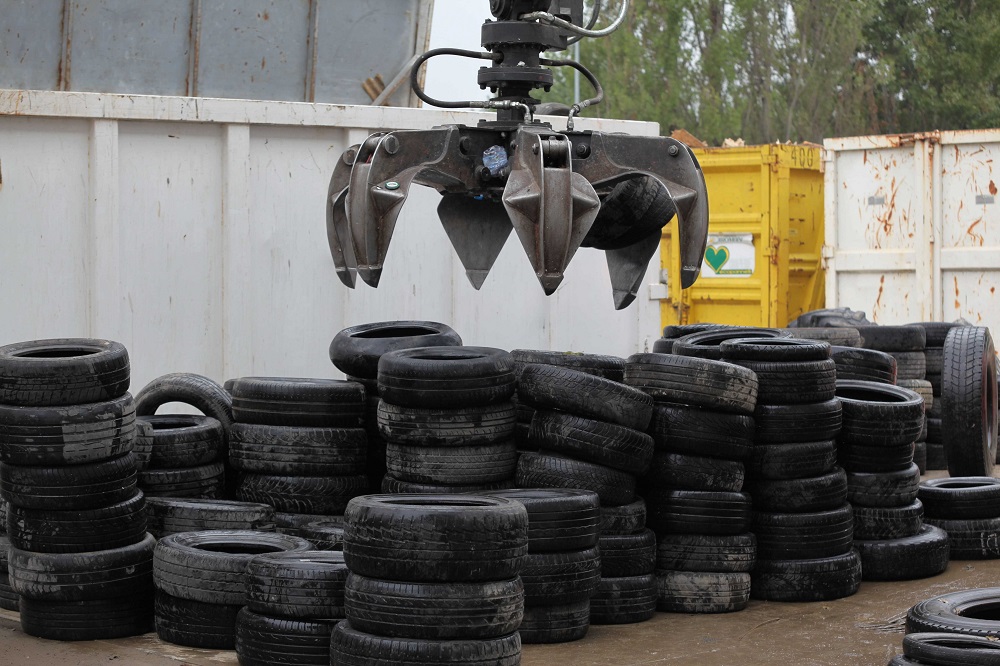During 2022, Ecopneus guaranteed widespread collection throughout the country, collecting 119% of its required target
More than 80,000 collections were carried out at over 27,500 tyre shops throughout Italy, bringing concrete benefits to the community and the environment.
Also in 2022, the management system for ELT by Ecopneus, confirms its excellence on the national scene. Despite the persistence of the health crisis and the difficulties on the economic front linked to the international crisis, Ecopneus once again ensured efficient and widespread collection in 2022 by collecting over 230,000 tons of ELTs and making an important contribution to the development of the recycled rubber market and the industrial chain of ELT recycling.
Ecopneus manages around 60% of the end-of-life tyres generated in Italy, collecting an average of 200,000 tons each year, gathered throughout Italy, from large centres to villages, from small mountain towns to smaller islands.
A commitment that does not stop at the collection and recovery of ELTs but goes further, to expand the possibilities of using recycled rubber, stimulating, and encouraging the continuous improvement of the treatment processes and products. In 2021 alone, Ecopneus has allocated around 2 million Euros in R&D projects to encourage the development of the market for applications of recycled rubber, in terms of quality of materials and expansion of application sectors.
Compared to the collection targets established by law, calculated on the quantities of tyres placed on the market by member companies in the previous calendar year, in 2022 Ecopneus collected 119% of its legal target, meeting the ministerial mandate of +20% required.
Overall, in 2022 Ecopneus fulfilled over 80,000 requests for the collection of ELT at over 27,500 tyre shops, service stations and garages in all Italian provinces.
“Once again in 2022 Ecopneus achieved important results by guaranteeing efficient and effective management of ELT under its responsibility – declared the General Manager of Ecopneus Federico Dossena – During the year Ecopneus deployed all the resources at its disposal, ensuring a capillary collection throughout the national territory by making a strong commitment to the development of the recycled rubber market, as evidenced by the increasing use in many sectors, from construction, to industry, to sport, to infrastructures, making an important contribution to the objectives sustainability issues and the fight against the climate crisis. These results are possible thanks to a supply chain made up of companies throughout the country.
“ Also, in 2023, we will undertake to accompany companies in this process, stimulating the study of new applications of recycled rubber and seizing all the opportunities that the economic recovery can offer, working with ethics and transparency at the service of the country and the environment “
The ELT recycling system managed by Ecopneus represents a case of excellence on the national scene, which over the years, has brought a concrete benefit to the community and the environment by vigorously promoting an ever-greater use of recycled rubber in many useful applications in daily life. The rubber obtained from ELT recycling is in fact a precious and widely used material all over the world for the construction of sports surfaces, soccer fields, for silent, safe and long-lasting asphalts, acoustic insulation, street furniture or used for energy recovery.
To date, the recycled rubber market is constantly growing, Ecopneus is actively dedicating itself to new trends and application sectors through constant Research and Development work, such as chemical recycling and applications in the industrial field, also distinguishing itself for its commitment in provide support and advice to local administrations on innovative and eco-sustainable solutions offered by rubber recycled from ELTs for Italian cities.
In 2021 alone, thanks to the recycling activity of Ecopneus, the emission of 310,000 tonnes of CO2 equivalent was avoided (a quantity equal to those of 185,000 cars traveling 10,000 km in a year), a water consumption of almost 1, 23 million m3 (the amount of water needed to fill 495 Olympic swimming pools) and a withdrawal of raw materials of 282 thousand tons (quantity equal to the weight of 575 Frecciarossa 1000 trains made up of eight carriages plus a locomotive). Benefits to which is added the savings for the country linked to the reduction the use of virgin materials.


















